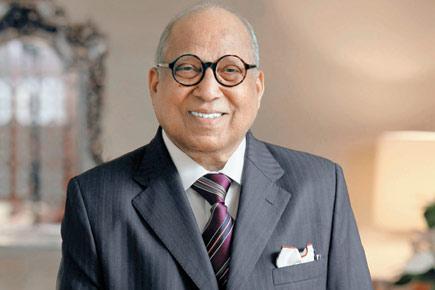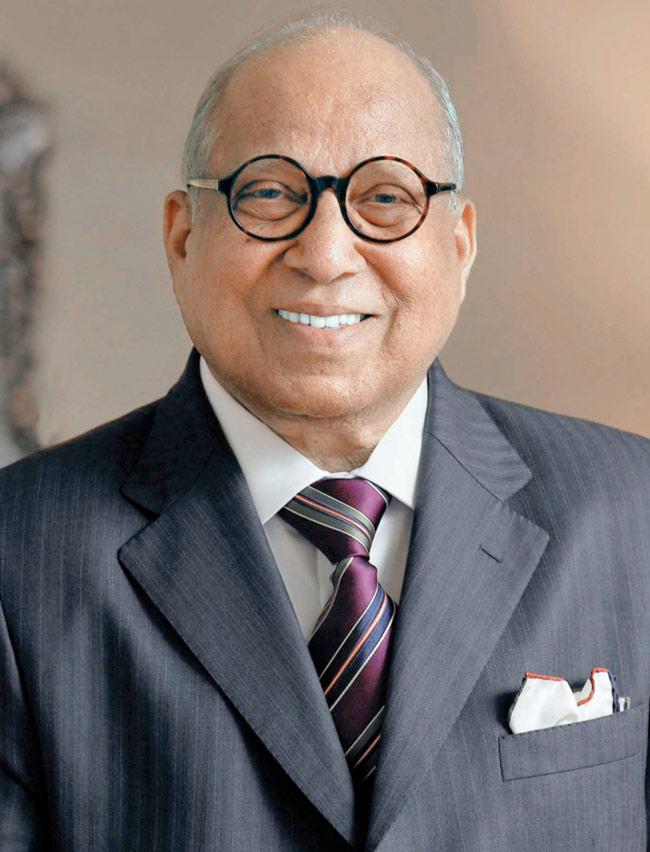Captain CP Krishnan Nair, who passed away yesterday after a brief illness, wore several hats with great aplomb. The founder-chairman of The Leela Palaces, Hotels and Resorts served in the Indian army and was an avid conservationist

It’s not very often that one associates a soldier to have a keen eye for aesthetics and admiration for flowers but that’s the way Captain Chittarath Poovakkatt Krishnan Nair, better known as Captain Nair, will be remembered by his friends and staff of Leela Kempinsky, Sahar, where he resided. The 92-year-old Padma Bhushan awardee and founder-chairman of The Leela Palaces, Hotels and Resorts passed away yesterday following a multiple organ failure.

Captain Nair died on early Saturday morning after a brief illness and multiple organ failure
Rising from the bunkers of Subhash Chandra Bose’s Azad Hind Fauj, which he joined at the tender age of 14, he went on to serve in the Maratha Light Infantry unit of the Indian Army. Often lauded for pioneering the globalisation of India’s textiles industries, with his invention — the bleeding Madras fabric and Leela Lace — named after his wife Madam Leela, Captain Nair ventured into the hospitality industry, by opening the first hotel in Mumbai at the age of 65. He went on to open seven other premium hotels and resorts in India and had five more projects underway.
Not one to rest on his laurels, which recognised him as a hotelier extraordinaire, few know that the Padma Bhushan from the President of India and Global 500 Laureate Roll of Honour by the United Nations, which was handed over by Emperor Akihito
of Japan, was for his untiring efforts in environmental conservation.Remembering him, Dr Amit Kohli, a family friend, who has also been Captain Nair’s physiotherapist and personal trainer, for the last 10 years recalled the special bond he had with exotic plants, especially the ones he had planted inside his Mumbai hotel compound.
Kohli said that they first met when Captain Nair was recovering from a stroke, which had curtailed his physical movements. “Like a true army man he bounced back with a strict regime of morning jog, followed by a game of basket ball and weight training in the gym,” he said.
“For years, our 90-minute morning regime would start at 8 am. He would stroll into the hotel garden, where he would invariably interact with the gardeners, enquiring about various flowering plants. His favourite was the tree called Baramasi’ which is in full bloom all year round. He would still enquire about it, when over the last three months he had renal complications and advised bed rest,” recalled Kohli.
Dr Alan Almeida, who was treating Captain Nair, described him as a jovial man, who still had the will to live. “Till his last stage, he was keen to know about the election results and formation of the new government.” Rashmi Vasisht, an American of Indian origin, who moved from New York to Mumbai, after a chance meeting with the doyen of the Indian hotel industry explained how the Leela Palaces, Hotels and Resorts got its corporate philosophy. “In Kanoor, the Nairs had a well in their compound, which would be used by neighbours to fetch water. The Captain’s mother would welcome everyone with a smile and utter an ancient Sanskrit scripture ‘Atithi Devo Bhavah’, which means the guest is god.
This eventually became the hotel’s corporate philosophy,” she said. Captain Nair is survived by his wife Madam Leela, their sons — Chairman and Managing Director, Vivek Nair, his wife Lakshmi and Co-Chairman and Managing Director, Dinesh Nair, his wife Madhu and his grandchildren.
 Subscribe today by clicking the link and stay updated with the latest news!" Click here!
Subscribe today by clicking the link and stay updated with the latest news!" Click here!









